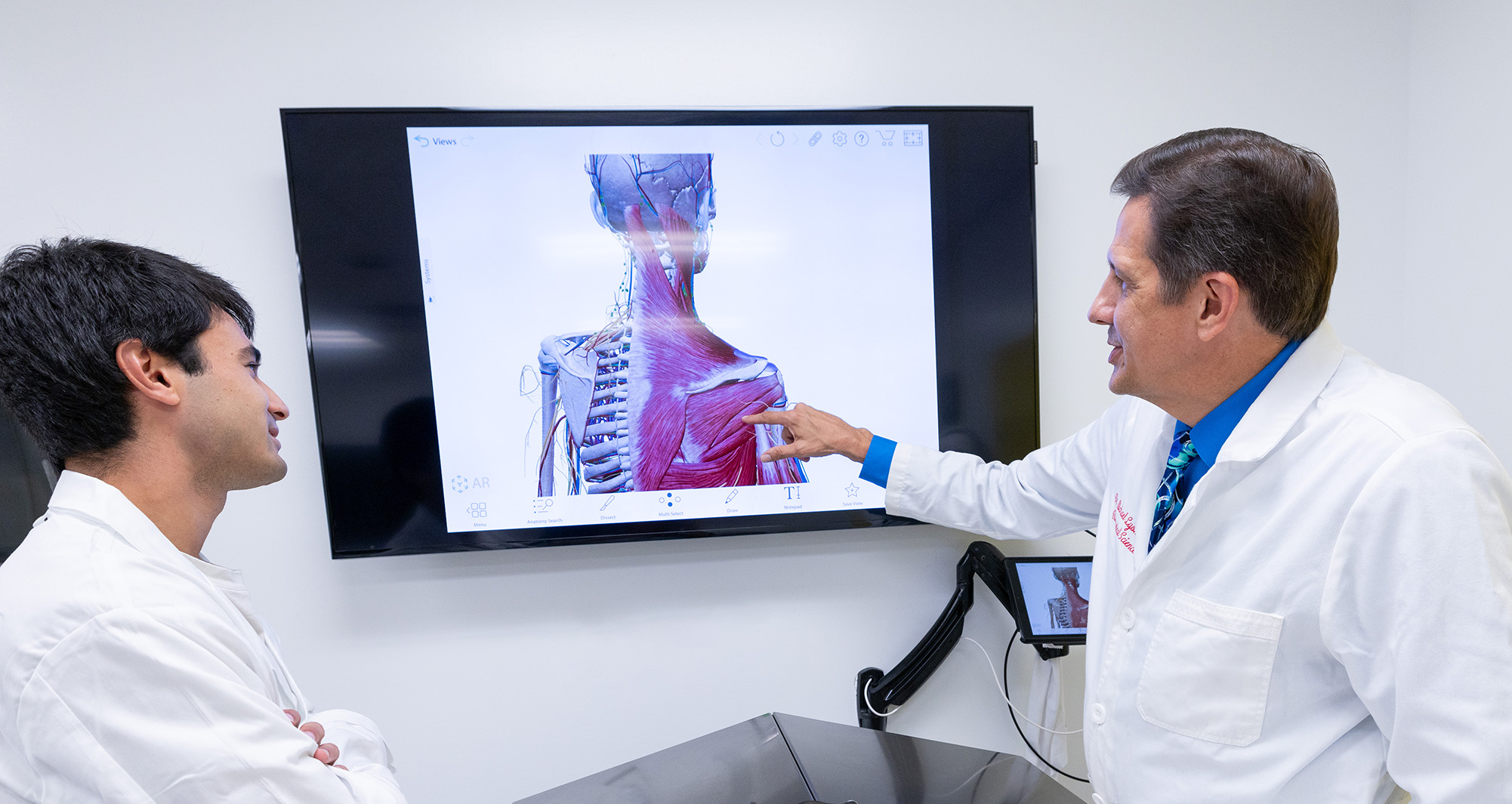
Graduate Students
-
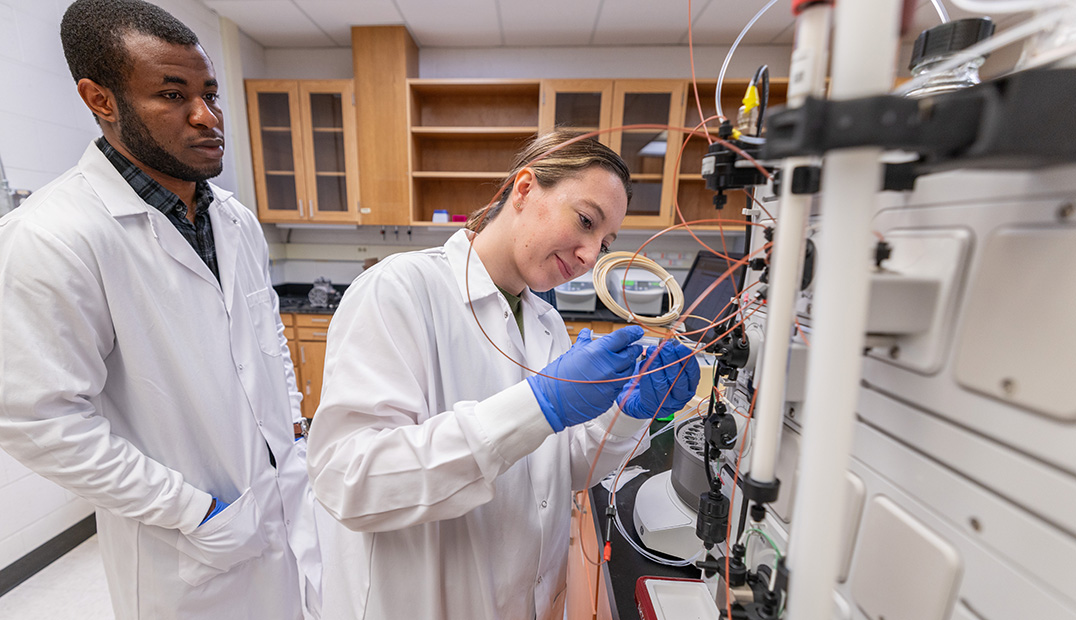
Biomedical Sciences
The BMS program is designed to train biomedical scientists in veterinary and comparative biology with emphasis on morphological analysis, cellular and molecular biology and physiology.
-
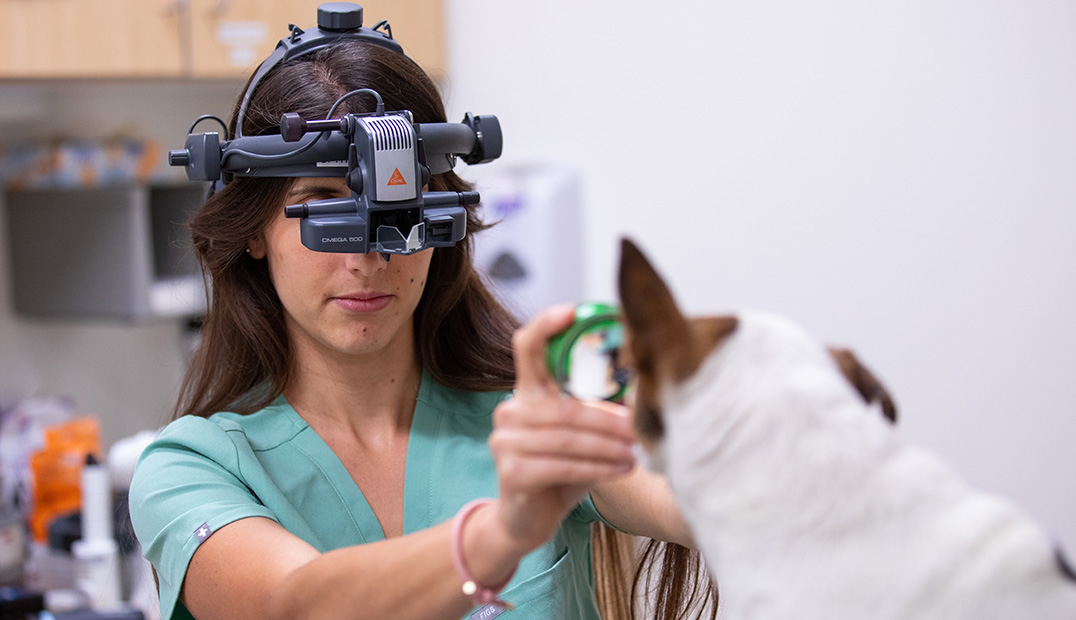
Veterinary Clinical Sciences
The graduate program of the department focuses on two major areas: residency training in preparation for board certification, and research training at the Master’s level. The department offers the Master of Science degree with a major in Veterinary Medicine, Veterinary Surgery, or Theriogenology.
-
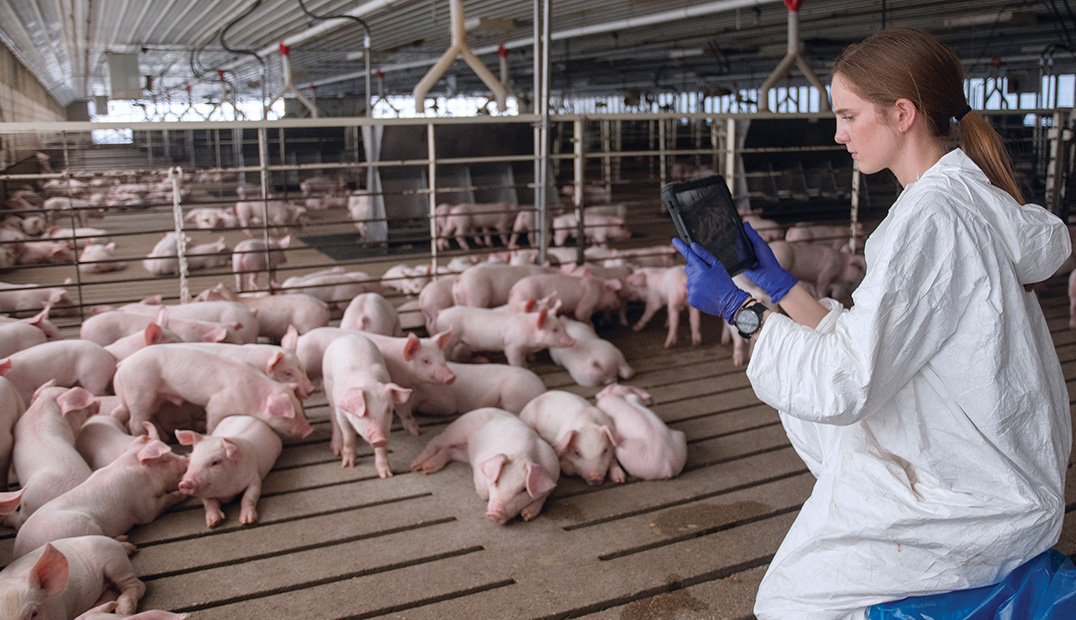
Veterinary Diagnostic and Production Animal Medicine
The department is uniquely composed of faculty with internationally recognized expertise in a variety of basic disciplines, including bacteriology, epidemiology, immunology, pathology, statistics, toxicology, and virology. Research is focused on infectious and non-infectious diseases at both the basic and applied levels.
-
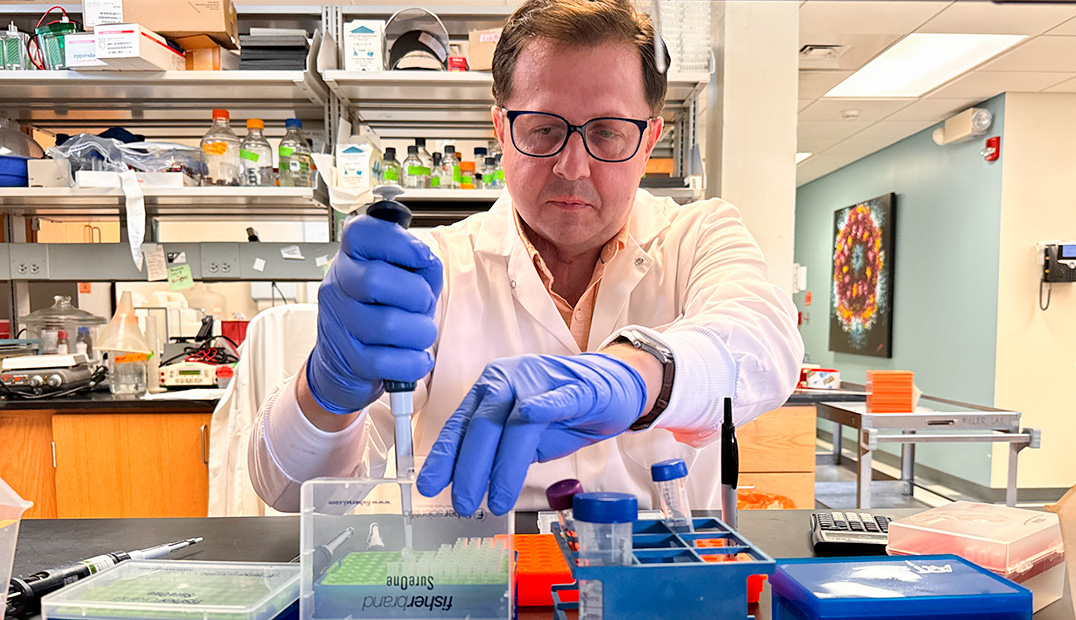
Veterinary Microbiology and Preventive Medicine
A broad range of basic and applied research is represented by the faculty who participate in our graduate programs. These include immunomodulation, vaccine development, infectious diseases, microbiology, microbial genetics, microbial pathogenesis, molecular virology, diagnostics, epidemiology, food microbiology, and food safety.
-
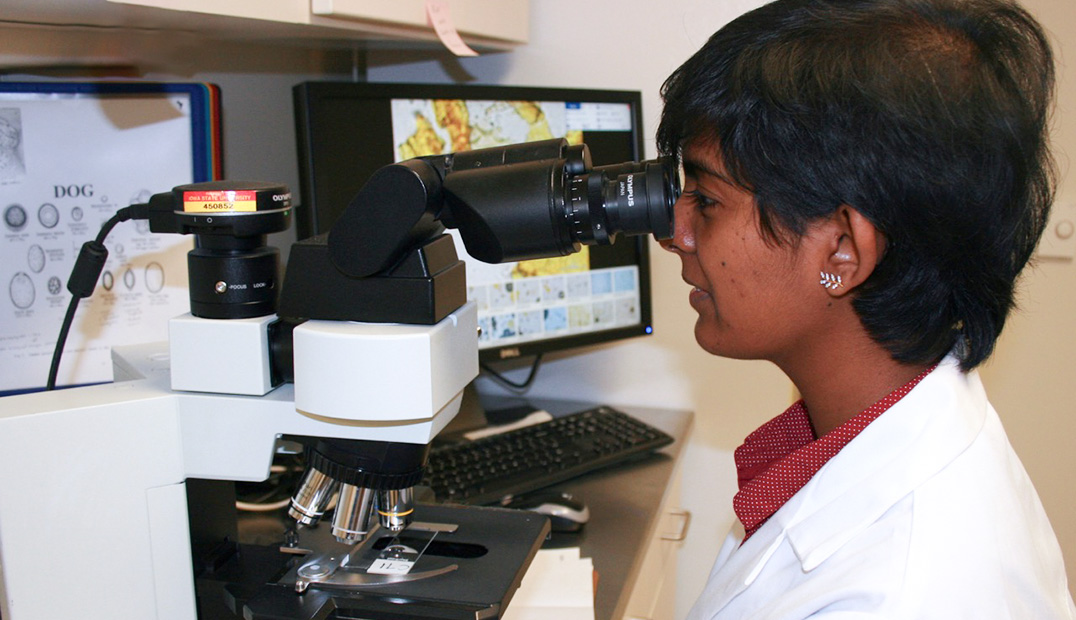
Veterinary Pathology
The department has focus areas of pathology, clinical pathology, parasitology, and an emphasis on training ACVP board-certified pathologists (residency/MS or PhD). Basic and clinical science are linked through essential roles in learning for students (undergraduate, veterinary and graduate) and veterinarians, diagnosis and reporting of diseases, and scientific research, including infectious and emerging diseases, parasitic diseases, animal models, and diseases of high consequence to animal and human health through integrated education, diagnostics, and research.
Concurrent and Sequential DVM/PhD Program
There are two options available for obtaining a dual DVM/PhD degree at ISU CVM. A PhD can be obtained in a number of subjects including infectious disease, biomedical sciences, and others. Graduates from the ISU CMV DVM/PhD programs are trained to fill the documented need for high quality veterinarian researchers in academia, government, and industry. These are example pathways for concurrent and sequential enrollment. There is flexibility within these programs as you are planning your program of study, and as you are fulfilling these degree requirements. For questions regarding concurrent and sequential enrollment, contact Dr. Jodi McGill, interim associate dean for research and graduate studies.
In this program, students will engage in coursework and research towards a PhD in basic or translational sciences concurrently with their DVM program. In the first year of the DVM program, students will identify a mentor for their PhD research topic and apply for admission to the graduate program. They will then work with their mentor to set a course for concurrent completion of their DVM/PhD. A general outline of the concurrent DVM/PhD is shown below.
Year 1
Fall/Spring VM1 coursework
Identify PhD Department/Lab
Summer PhD Research, PhD coursework
Year 2
Fall/Spring VM2 coursework
Summer PhD Research, PhD coursework
Years 3-5(6)
Fall/Spring/Summer
PhD Research, PhD coursework
Preliminary Exam
Dissertation defense
Year 6(7)
Fall/Spring/Summer VM3 coursework
Year 7(8)
Fall/Spring VM4 course/clinical work
While time to completion of both degrees may be variable, it is typically expected to take 7-8 years.
The Graduate College handbook has a section dedicated to Veterinary Medicine Students in Concurrent Graduate Degree Programs.
In this program, the student will complete all 4 years of the DVM program before formally beginning their PhD dissertation research in basic or translational sciences. They may have the opportunity to complete some of their PhD coursework during the DVM years, but will not begin the bulk of their PhD course/research requirements until after they have received their DVM. A general outline of the sequential DVM/PhD is below.
Year 1
Fall/Spring VM1 coursework
Year 2
Fall/Spring VM2 coursework
Year 3
Fall/Spring/Summer VM3 coursework
Year 4
Fall/Spring VM4 course/clinical work
- Years 5-8 (9)
Fall/Spring/Summer
PhD Research, PhD coursework
Preliminary Exam
Dissertation defense
While time to completion of both degrees is variable, it is typically expected to take 8-9 years.
DVM/MS Program
Students in the professional school (DVM) may also enroll for graduate studies in the Masters with thesis program in any of the 5 departments within the College of Veterinary Medicine. Students who have demonstrated exceptional academic achievement and are highly motivated will be considered. A veterinary student who has completed a minimum of 90 semester credits or their equivalent in pre-veterinary and professional curricula or has earned a bachelor’s degree and wishes to concurrently enroll in a graduate degree program or certificate must follow the procedures outlined below to obtain permission. After the concurrent status has been approved, there is no limit on the number of credits that may be earned toward the graduate degree before receiving the DVM. degree. Credits before concurrent status cannot be transferred.
DVM/MBA Program
Iowa State University offers applicants to the College of Veterinary Medicine the opportunity to apply for the concurrent Doctor of Veterinary Medicine/Masters of Business Administration Program. This program is designed to allow a student admitted to the DVM program a one-year deferment to the professional program in order to begin the MBA at Iowa State University’s College of Business. Detailed information about the program and its requirements can be found on the College of Business website.
DVM/MPH Program
This combined degree program is the result of the collaboration between faculty at Iowa State University, College of Veterinary Medicine and the University of Iowa, College of Public Health. Veterinary students can complete this degree concurrently and graduate in four years. Graduate veterinarians can utilize distance technology and obtain the MPH degree while remaining in their current job and place of residence. Detailed information regarding applications, classes, and opportunities for graduates working in public health can be found at the link below.
